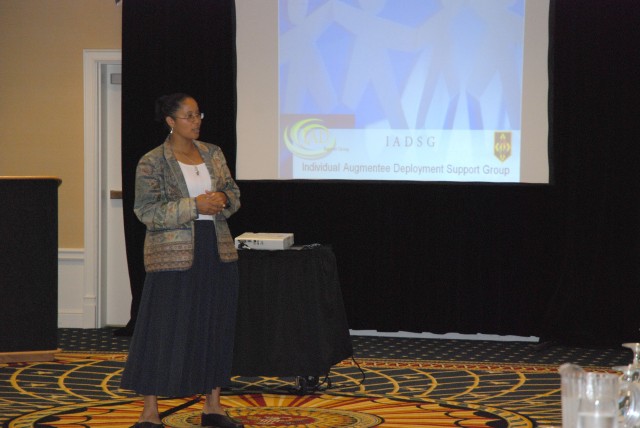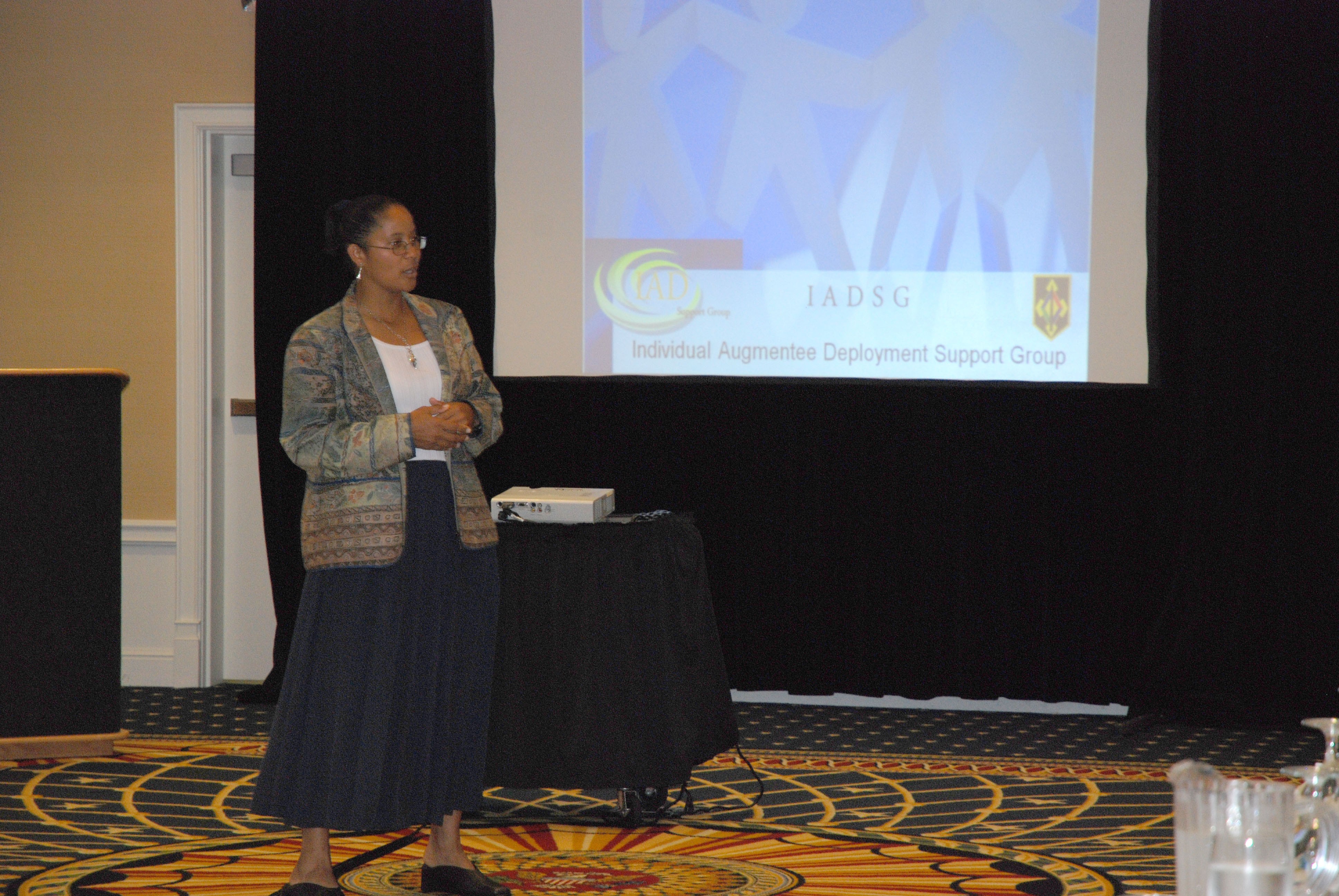GETTYSBURG, Pa. (Aug. 20, 2009) - Spouses of U.S. Army Training and Doctrine Command commandants and command sergeants major have endured deployments and permanent changes of station among all the stresses that Army families face, but at the TRADOC Senior Leaders Conference here on Thursday, they learned and brainstormed on how to reach families affected by individual augmentee deployments. "Individual augmentees are people whose families are not geographically located new the unit they're assigned to for the duration of the deployment.
Nearly every unit has augmentees assigned to them. The augmentees were probably assigned to a military transition team and now they're placed elsewhere," said Lt. Col. Diane Cummins-Lefler, commander of the Individual Augmentee Deployment Support Group, or IADSG for short. The IADSG is part of the Training Support Battalion at Fort Leonard Wood, Mo.
"Every unit has a family readiness group," she said. "But what happens when the FRG isn't where you're stationed' Where do you go' Who do you talk to'"
Family readiness groups (FRGs) on installations are divided by units. Individual augmentees did not have an FRG and went without the network of other spouses in the same situation until the IADSG came along.
The IADSG is open to all branches of the military and provides opportunities and services for families who are not specifically assigned to a rear detachment on their installation. But the IADSG is not recognized as an FRG, but rather as a support element.
With that unique task, one challenge in reaching out to these families is knowing who they are.
"Where we lose people in out-processing is that if the family is leaving doesn't communicate to the [Army Community Service] on the new post, then we can't keep track of that family - they have fallen through the cracks," said Deanie Dempsey.
While out-processing through ACS is a requirement, it is often overshadowed by other priorities such as out-processing with the medical clinic or preparing a family for a PCS move. Other programs are available for families through ACS, but before the IADSG was established, families not assigned to a unit couldn't receive the social and moral support of others in their position. IADSG works to bring individual augmentee families together and ease a difficult transition.
Another place where IADSG is trying to meet these families' needs is getting the word out about their program.
"A Soldier may plan to come out to Leonard Wood by himself, but at the last minute, his family chooses to join him because they like the school systems. And they won't know about us until later down the line or until something happens," said Cummins-Lefler.
"And if, God forbid, something happens, we have to be ready to get involved. We need to know where they are in case we need to find them," said Dempsey.
To counteract these situations, Cummins-Lefler suggests word-of-mouth and getting connected with the on-post school and child-development centers as the best way of reaching families. This may even require cultural change among spouses.
Vickie Johndrow used an anecdote to show how senior spouses are leading to change norms and break down barriers to ensure families are being cared for.
"I once had a lieutenant's wife and an enlisted Soldier's wife who wanted to be best friends, but they weren't sure they could do it because of their husbands' ranks," she said. "There's a stigma that's going on and the gap is being closed, but we have to [continue to work at] this."
Another concern for a TRADOC IADSG is funding and staffing.
"TRADOC has a smaller budget for these programs, whereas [U.S. Forces Command] gets a lot more resources and support," said Cummins-Lefler.
While the IADSG is being supplemented by donations, fundraising and volunteer efforts, limited resources mean that spouses are encouraged to get creative with programs and partner with other groups on post like ACS and Child and Youth Services.
As the discussion drew to a close, the 42 women were reminded of the importance of reaching out and supporting families.
"This is just a piece of what we can do to make sure our Soldiers and their families are taken care of," said Alex Laidlaw. "Our job is to know that there are people in these positions. We're not going to find the perfect situation, but with all these pieces in place, we're going to catch as many as we can."


Social Sharing